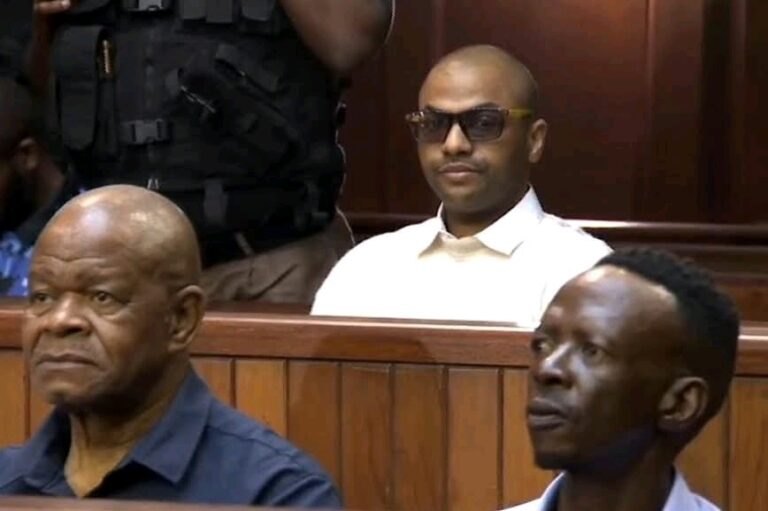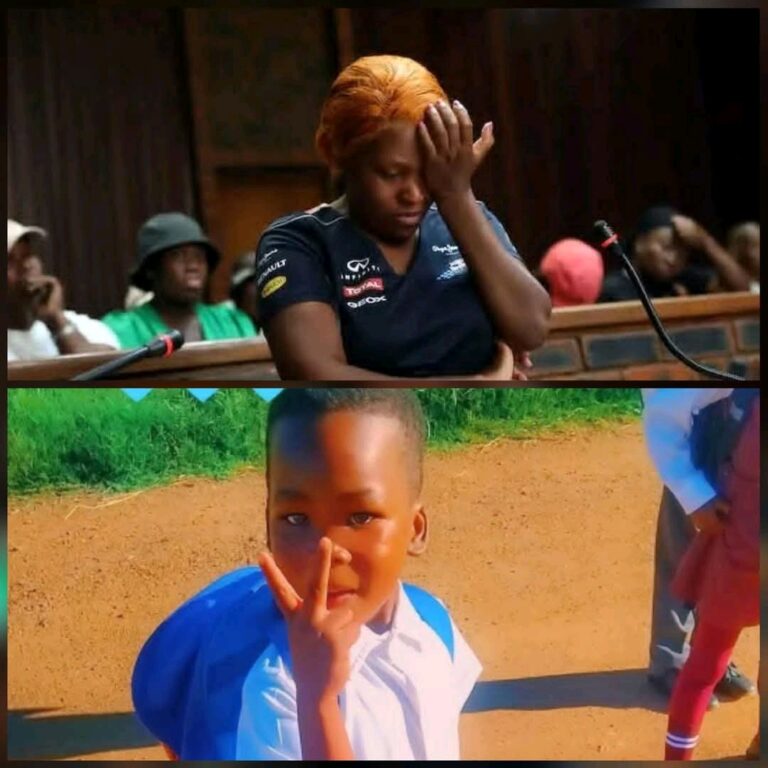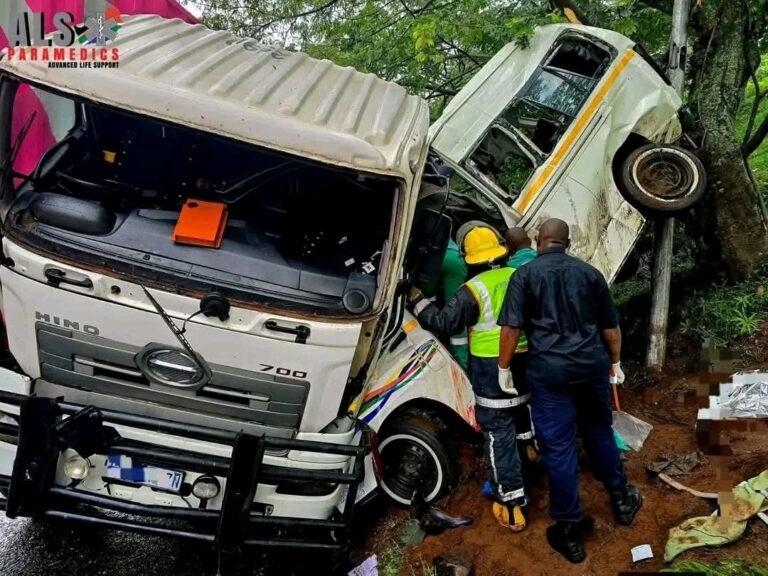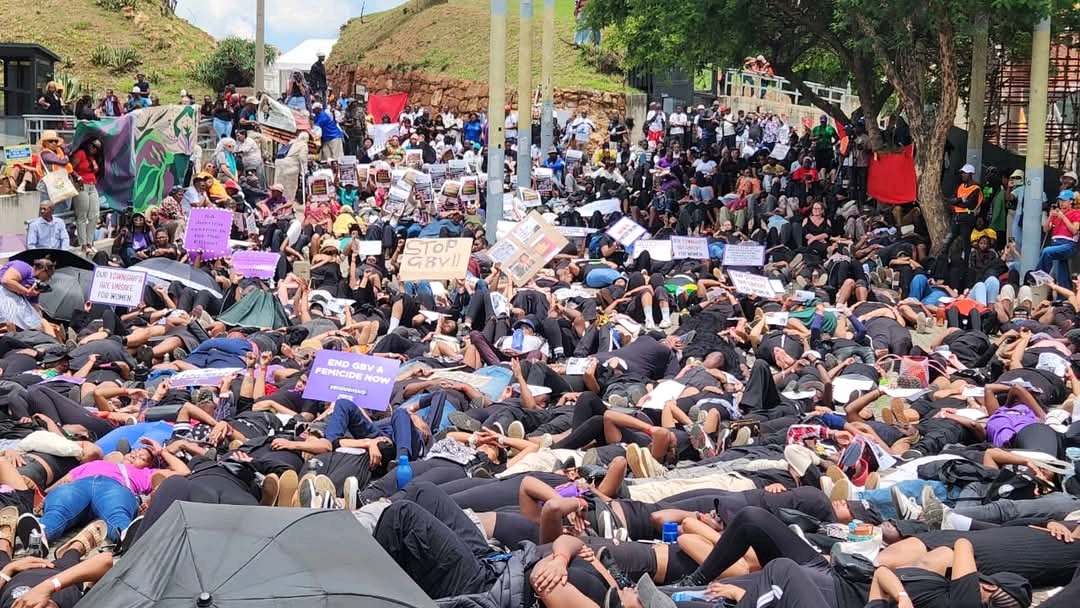
South Africans from all walks of life filled the streets of major cities on November 21, taking part in a powerful nationwide demonstration against gender-based violence (GBV). The marches, organised largely by Women for Change and supported by thousands of residents, came just hours after President Cyril Ramaphosa formally declared GBV and femicide a national crisis.
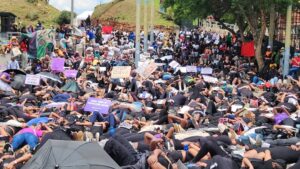
The country-wide demonstrations were marked by emotional displays and symbolic actions. In several cities, protesters lay motionless on the streets, representing the women and girls who never made it home. The silence that hovered over these gatherings was a stark reminder of the magnitude of pain and loss felt across the nation.
Women for Change, known for its strong advocacy for survivors, shared a deeply emotional message: “We gather for the women who never made it back home… for every survivor suffering in silence. We see you. We do this for our children, our sisters, and our brothers — for every life that deserves safety and freedom.”
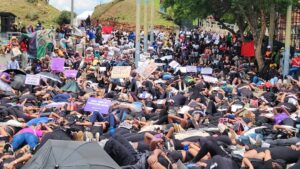
From Eden Park to Cape Town, East London, Johannesburg and Durban, South Africans united under a single message: “Enough is enough.”
A Nation Uniting for Justice
Participants shared messages of solidarity on social media, emphasising the need for communities to refuse silence. Many held placards demanding justice, stronger policing, improved survivor support, and harsher penalties for perpetrators. Others sang, prayed, or stood quietly, honouring the victims of GBV.
In Cape Town, thousands dressed in black gathered along the Sea Point Promenade, calling for GBV to be declared a national disaster. Their message was unequivocal: no more delays, no more empty promises — immediate action is needed.
GBV Officially Declared a National Crisis
President Cyril Ramaphosa’s acknowledgement of GBV as a national crisis marks an important step in the fight against violence. Speaking in Boksburg during the G20 Social Summit declaration, he emphasised that the country can no longer treat the issue as secondary, especially given the rising number of reported cases.
https://x.com/Chriseldalewis/status/1991849605328162908?t=9R_WaQ6kJ2j_S739rqc4jg&s=19
The classification follows years of pressure from civil society organisations who have urged government to take decisive action to protect women and vulnerable groups.
The Numbers Tell a Harrowing Story
Recent findings paint a bleak picture of the state of gender-based violence in South Africa:
- 33.1% of women aged 18 and above have endured some form of physical violence.
- 9.3% have faced non-partner sexual violence.
- Women with disabilities remain at significantly higher risk:
- 29.3% experienced lifetime physical violence.
- 14.6% were subjected to partner-related sexual violence.
- 60% endured controlling behaviour in relationships.
- Domestic violence reports nearly doubled between 2020/21 and 2023/24.
- In the first quarter of 2025 alone, more than 10,688 rape cases were reported, with Gauteng, KwaZulu-Natal, and the Western Cape identified as high-risk provinces.
These statistics echo the lived experiences of thousands of South African women who face daily threats in homes, workplaces, schools, and public spaces.
A Call for Real, Lasting Change
Activists argue that marches, while symbolic and powerful, must be accompanied by real systemic change. They are calling for:
- Stronger, more responsive policing
- Faster court processes
- Stricter sentencing for offenders
- Improved survivor shelters and protection services
- Education programmes to prevent violence before it starts
The movement’s momentum continues to grow, with communities across the country demanding that the safety of women and children be treated with urgency.
As South Africa stood together in purple, black and white this weekend, one message echoed from city to city: Women deserve to live free from fear. They deserve safety, dignity, and justice — now.

